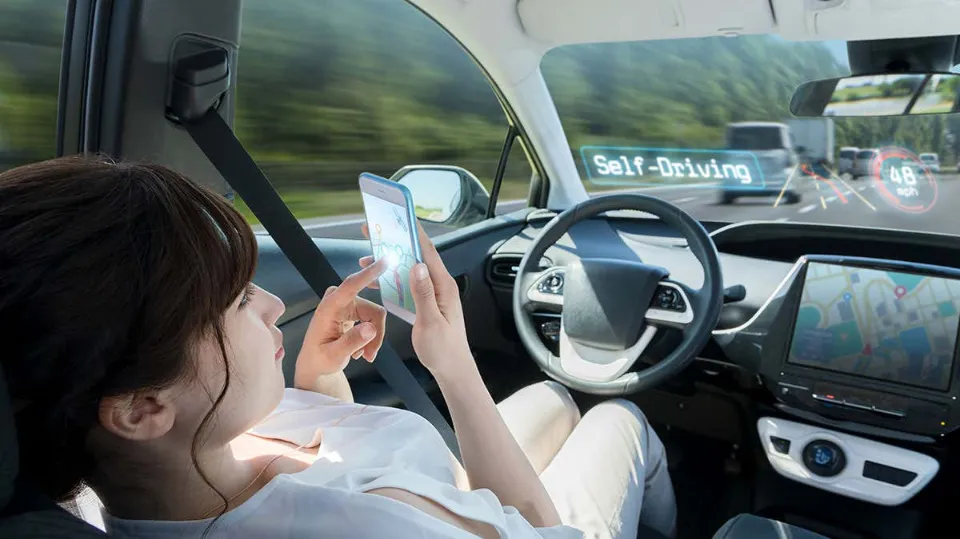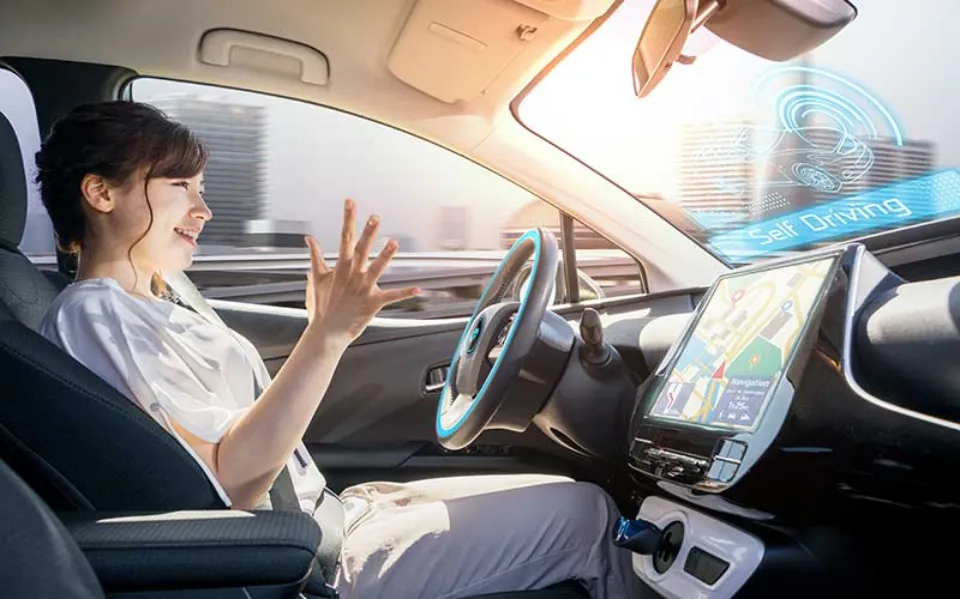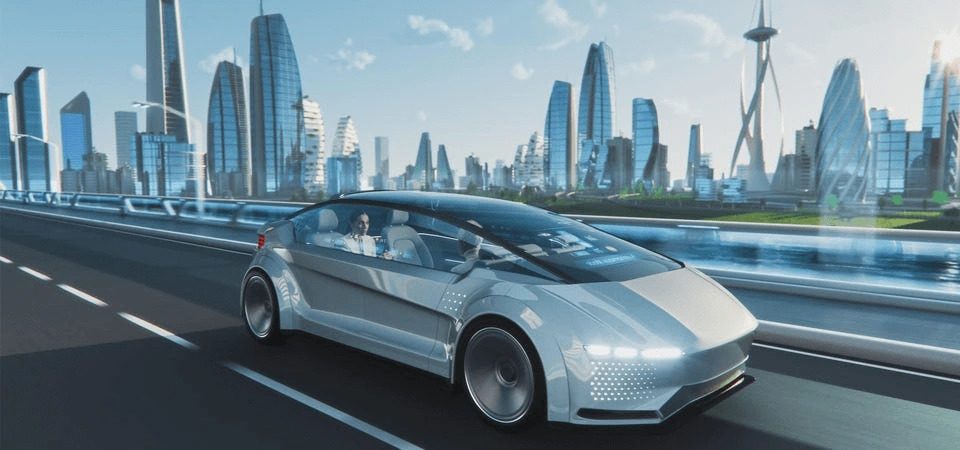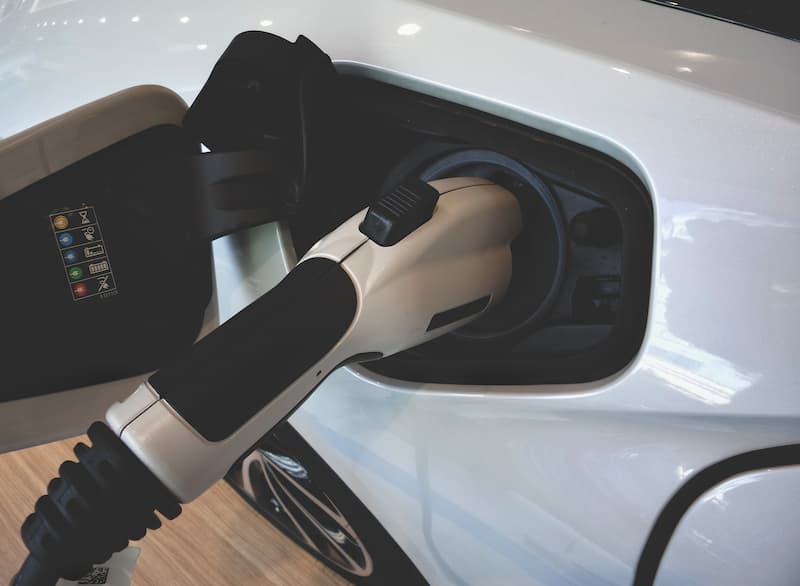Continue reading as we discuss some of the most frequently cited Pros and Cons of Self-driving Cars.
Many people might believe that self-driving cars are still far from becoming a reality. In actuality, automated driving system development is already well under way. In actuality, automation is already present in the majority of contemporary vehicles. Keep reading.
Table of Contents
Pros of Self-Driving Cars and Cons
Here are the details:
Less Room for Human Error
The goal of self-driving cars is to reduce the possibility of human error causing an accident. These automobiles are expected to observe traffic laws, maintain a safe distance from other vehicles in their lane, and protect both the occupants and other road users.
But this idealized picture isn’t always accurate. Research shows self-driving features give people a false sense of safety that leads to unsafe driving behavior. For example, someone might assume a partially autonomous car drives on “autopilot” but actually, it still needs human guidance.
Reduced Traffic Congestion
The potential to lessen traffic on our country’s roads is one of the biggest promises made by self-driving cars. The number of accidents, traffic jams, and calls for highway police and EMTs might all decrease if driverless cars became more commonplace. Using public transportation might also be made much simpler.
This may potentially result in additional advantages like lower insurance costs, less gas consumption, and a reduced risk of accidents causing injuries and property damage. It wouldn’t be so annoying to drive in traffic.

Potential for Faster Travel
Wouldn’t it be wonderful if we could do away with speed limits and rely solely on self-driving cars to get us where we need to go as quickly as possible? One of the enormous potential advantages of driverless cars is this.
After work, you could quickly return home. There would be no traffic delays caused by school buses. Fast and secure cargo delivery was possible with big rigs. Ambulances could save more lives by bringing patients to the hospital more quickly.
Decreased Traffic Flow
Improved travel distances between vehicles are possible because self-driving cars communicate in real time. Common traffic worries may be lessened as a result.
Easier Access for the Elderly and Disabled
For both elderly people and people with disabilities, self-driving cars may be a safer, more practical alternative. A 2017 study by Ruderman Family Foundation observes, “About 2 million people with disabilities would be given access to new employment opportunities as a result of removing transportation-related barriers, and the annual healthcare costs associated with missed appointments would be reduced by $19 billion. This is in light of the expected wider effects of autonomous vehicles, which include $1.3 trillion in savings from increased productivity, decreased fuel costs, and accident prevention, among other things.”
Cons of Self-Driving Cars
Here are the details:
More Room for Technological Error
The obvious but significant disadvantage of self-driving cars is that they are heavily dependent on technology. Self-driving car technology is currently a bit glitchy and prone to mistakes.
Look at the famous example of the San Francisco pedestrian killed in a self-driving Uber crash. The technology of the car detected the pedestrian’s presence, but the brakes weren’t applied, according to the investigators. The human driver was too preoccupied to react in time to avoid the collision.
Unpredictable Traffic Patterns
There is very little data available about the traffic patterns caused by the millions of human drivers who are already using our roads, despite decades of research in this area. What alterations to the roads might there be if driverless cars predominated? The fact is, nobody is aware.
Machines are typically seen as trustworthy and predictable by humans. However, studies have found that both human drivers and self-driving cars can exhibit unpredictable behavior. When rushing, people tend to drive differently. For instance, they may run a red light out of impatience.
Driverless cars aren’t perfect either; they occasionally make mistakes due to obstructions like construction, gravel roads, pedestrians, and animals in the road. The Insurance Institute for Highway Safety says self-driving cars “could struggle to eliminate most crashes.”

Higher Impact Crashes
Speed that is too fast carries too much risk. Imagine a self-driving car colliding with another vehicle at 100 mph. There is a significant chance that someone will die or suffer serious injuries in this high-impact crash.
One study found that for every 5 mph increase in speed, there were 8% more road fatalities. It is unclear how self-driving vehicles will affect these kinds of statistics.
Hackers and Cyber-Security Threats
A very real disadvantage of self-driving cars is security concerns. Vehicles that depend on computers for operation are vulnerable to cyberattacks. The capacity of society to maintain connections and provide essential resources to the masses would be compromised if an entire system was compromised.
We have observed the various disruptions that the most recent Colonial Pipeline hack produced. A network breach involving autonomous vehicles would be much more serious and impossible to quantify.
The Moral Dilemma
In discussions of self-driving cars, one very significant theme that may not receive the attention it merits is that pros and cons are sometimes considered without taking morality into account.
The moral dilemma hinges on the idea that the artificial intelligence in self-driving vehicles lacks the ability to make judgments between multiple favorable outcomes — or “least bad” outcomes, for that matter. One well-known instance would be an autonomous vehicle choosing to veer off the road, possibly killing the driver inside, in an effort to avoid colliding with a school bus carrying children.
Summary: Pros and Cons of Self-driving Cars
The argument over the use of fully autonomous technology and self-driving cars is still hotly contested. In actuality, we’ll keep seeing improvements in this field of technology. We must plan how to apply these developments to our everyday lives.
Read about Is TRQ a Good Brand?













